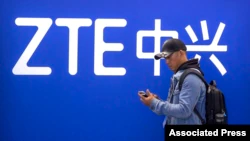China Seen Backing ‘Digital Authoritarianism’ in Latin America
Chinese technology and expertise is making it possible for Venezuela and Cuba to exercise suffocating control over digital communications in the two countries, according to insider accounts and several international investigations.
Venezuela and Cuba do more to block internet access than any other governments in Latin America, according to the U.S.-based advocacy group Freedom House, which has documented what it describes as “digital authoritarianism” in the region since 2018.
“Whoever believes that privacy exists in Venezuela through email communications, Twitter, WhatsApp, Facebook and Instagram is wrong. All these tools” are totally subject to government intervention, said Anthony Daquin, former adviser on computer security matters to the Ministry of Justice of Venezuela.
Daquin participated between 2002 and 2008 in delegations sent by former President Hugo Chávez to China to learn how Beijing uses software to identify Chinese citizens, and to implement a similar system in Venezuela.
Key to those efforts was the introduction in 2016 of the “carnet de la patria” or homeland card, developed by the Chinese company ZTE. While theoretically voluntary, possession of the cards is required to access a vast range of goods and services, ranging from doctor’s appointments to government pensions.
The cards were presented as a way to make public services and supply chains more efficient, but critics denounced them as a form of “citizen control.”
Daquin said China’s role in recent years has been to provide technology and technical assistance to help the Venezuelan government process large amounts of data and monitor people whom the government considers enemies of the state.
“They have television camera systems, fingerprints, facial recognition, word algorithm systems for the internet and conversations,” he said.
Daquin said one of the few means that Venezuelans have to communicate electronically free from government monitoring is the encrypted messaging platform Signal, which the government has found it very costly to…

